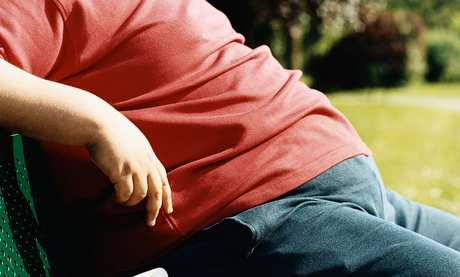
Obesity causes increased risks of hearing loss according to a study published in the American Journal of medicine. We may think that hearing loss as we age is unavoidable, but it is clear that there are risk factors that we can actually do something about. Keeping active and keeping our weight within healthy limits can help to preserve our hearing.
In the study, 68,000 women were monitored over a twenty year period starting in 1989. Their hearing was tested as was their body mass index (BMI). They also had to report on the amount of exercise they were getting, and waist circumference was measured as an additional check.
The findings of the study showed a significant relationship between low levels of physical activity, obesity and hearing loss. On the other side of the coin, those with a lower BMI who remained active had 17% less chance of experiencing hearing loss as they aged. The waist measurements of the subjects as compared to hearing loss confirmed the results. Subjects with a waist measurement that exceeded 80cm had 11% more chance of loss of hearing compared to their slimmer counterparts and those whose measurement exceeded 88cm had a highly significant 27% greater chance of becoming hard of hearing.
The relationship between hearing loss and obesity applies to teenagers as well as adults. A separate study showed that being overweight as a teenager very nearly doubles your chance of one sided low frequency hearing loss.
Researchers are still debating the physiological implications of obesity that may affect hearing, but whatever they are, the link between obesity and hearing loss has been established beyond all doubt. It is certain that the sensitive hair cells that detect sounds are damaged, and once this has happened, hearing loss cannot be reversed. One of the theories that may explain the link between obesity and loss of hearing is that blood circulation is impaired in those who are overweight. Once the hair cells become deprived og oxygen and nutrients, they slowly start dying off.
What can you do about it?
Of course, the answer to that is that you should lose weight if you are overweight or obese, but as we all know, losing weight is easier said than done. It is possible that a re-set of the metabolism such as that induced by the hCG injection diet could make it easier to lose weight. Whatever else you do, restriction of calories and portion sizes combined with sufficient exercise are essential to losing weight, ultimately preserving your hearing and your overall health.
If you have concerns about your health related to being overweight, you should consult your doctor in order to determine the best way for you to lose weight. For example, if you are obese, strenuous exercise may place strain on your heart. If youre concerned about balancing your diet so that you are neither starving yourself nor overeating, you can use the principles outlined by the USDA in their ChooseMyPlate program.
Its not just about looking and feeling better, its about preserving your heart health, preventing diabetes and preserving your hearing.